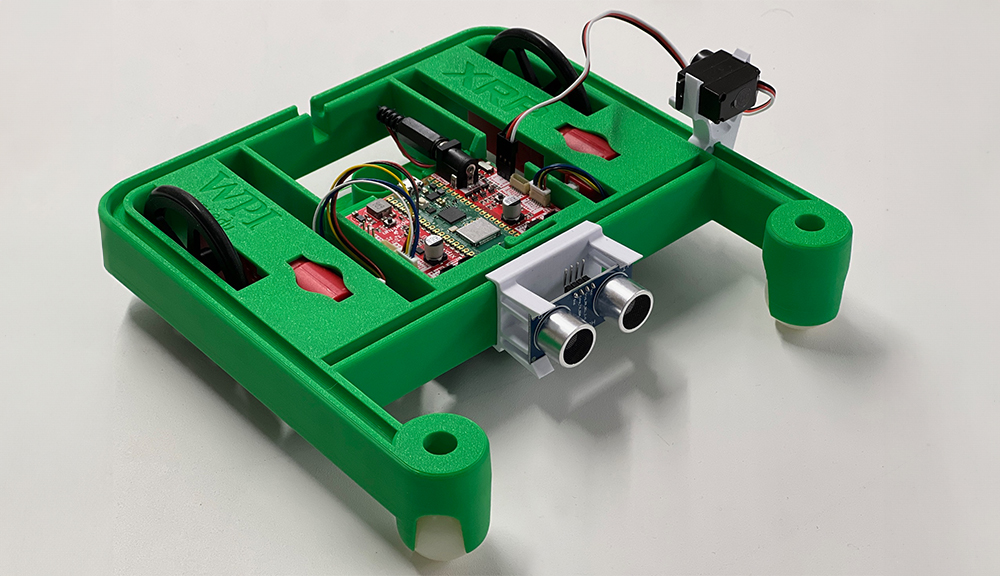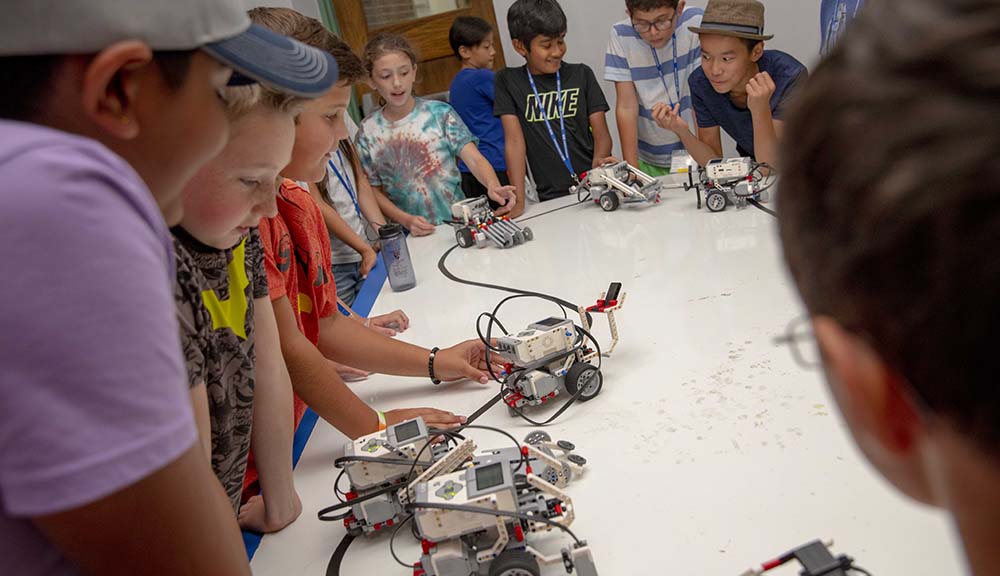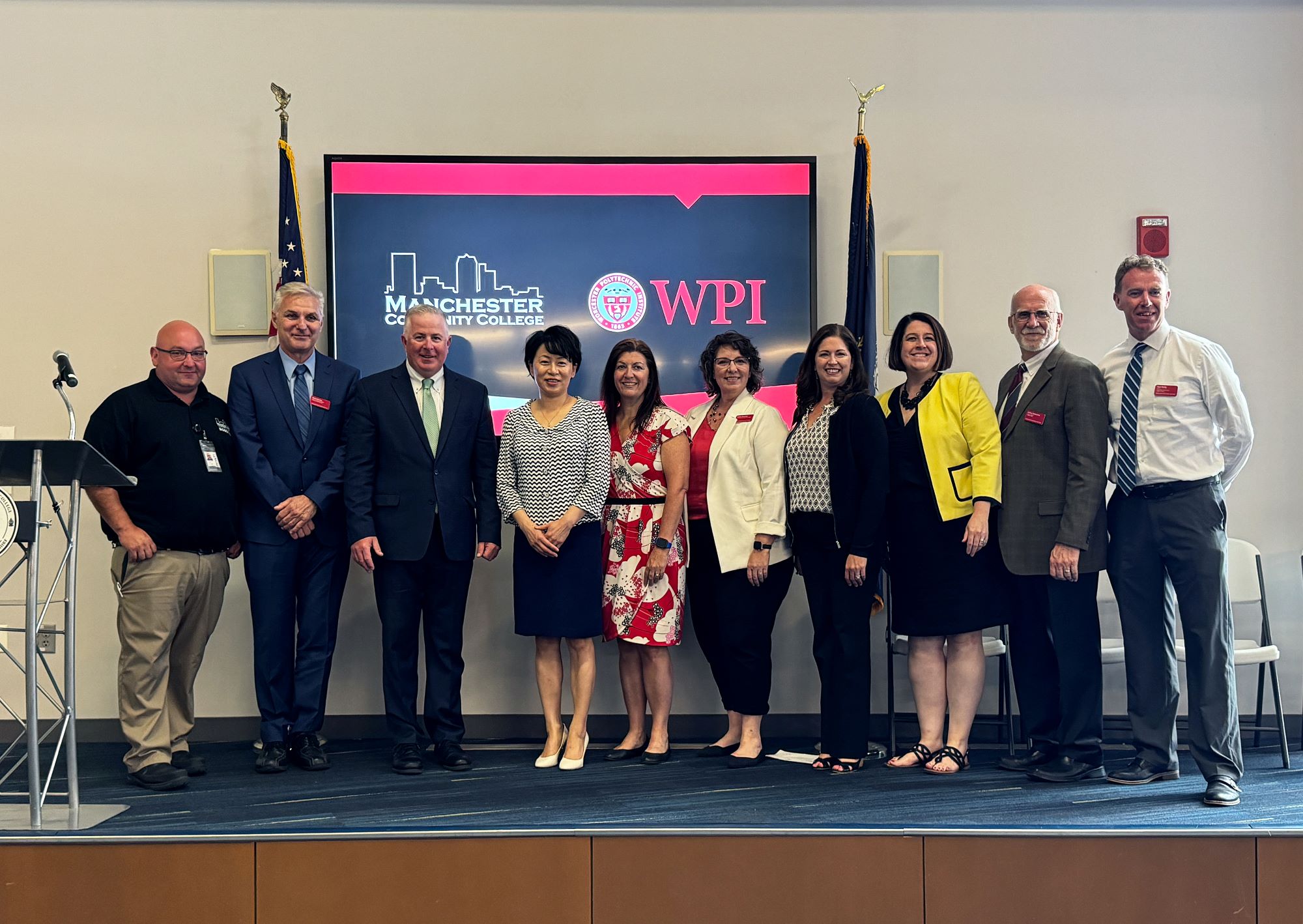WORCESTER, Mass. - Worcester Polytechnic Institute (WPI) today announced that it plans to offer the nation’s first bachelor’s degree program in robotics engineering starting in the fall of 2007.
The new major grows out of an increasing demand for robots and robotics systems to meet national needs in such areas as defense and security, elder care, automation of household tasks, customized manufacturing, and interactive entertainment, and also responds to the escalating interest in robots among young people.
View the Robotics Engineering web site.
"Robotics is one the fastest growing areas of technology and has the potential to change many aspects of our world and greatly improve human life," noted Carol Simpson, WPI’s provost and senior vice president. "This major is designed to prepare a new breed of engineer with the skills and imagination to develop machines that go far beyond today’s reality. Meeting this challenge requires an approach to engineering education that crosses academic boundaries, since no single discipline can provide the necessary breadth."
In the program, to be offered jointly by the Computer Science, Electrical and Computer Engineering, and Mechanical Engineering departments, students will receive a firm grounding in the fundamentals of these three fields, and learn to apply them to design and build robots and robotic systems for a wide variety of emerging applications. Graduates will be well-prepared for careers in the rapidly expanding robotics industry and for graduate work in the field. The program also includes an entrepreneurship course to ensure that students have the skills they need to turn their robotics ideas into viable businesses.
"Whether in science fiction or real life, robots have the power to fire young people’s imaginations and spur their interest in technology," Simpson added. "By building upon our already extensive involvement in robotics competitions and K-12 outreach programs, this program can help WPI respond to a national imperative by attracting more young people—particularly girls—into science and engineering. At the same time, we will be helping the United States build the innovative, technically advanced workforce it will need to assure its technical and scientific leadership well into the 21st century."
The robotics engineering program will draw on the expertise of more than 20 associated faculty and staff members and capitalize on the university’s involvement in high-profile robotics competitions over the past 15 years. Each year, the university sponsors three major competitions that engage well over 1,200 local and regional elementary-, middle-, and high-school students. In addition, university faculty, staff, and students conduct robotics demonstrations at 70 schools and organizations throughout the region and work with K-12 schools on curriculum development and other robotics outreach programs.
Since 1992, WPI has sponsored a team in the international robotics competition organized by FIRST (For Inspiration and Recognition of Science and Technology), which was created by WPI alumnus Dean Kamen, founder and president of DEKA Engineering and Development Corp. in Manchester, N.H., and inventor of the Segway Human Transporter.
Development of the robotics engineering program was guided by an advisory board comprising representatives of several leading robotics companies in Massachusetts, which has more than 150 companies, institutions, and research labs in the field employing more than 150,000 people. Members include Helen Greiner, chairman of iRobot Corp. in Burlington, Mass., maker of the popular Roomba floor-cleaning robots; Brian Abraham, president of Bluefin Robotics in Cambridge, Mass., developer of robotic undersea vehicles; and Brian Hart, president of Black-I Robotics in Bedford, Mass., manufacturer of low-cost, expendable robots for military and civilian applications. Dean Kamen is also a member.
The new program, which will receive a final review from the university’s Board of Trustees in February, is the third interdisciplinary undergraduate major developed by WPI during the past two years. Interactive Media & Game Development (IMGD), offered jointly by the Computer Science and Humanities and Arts departments, began in 2004. A program in environmental engineering will be offered by Chemical Engineering and Civil and Environmental Engineering starting next fall.


